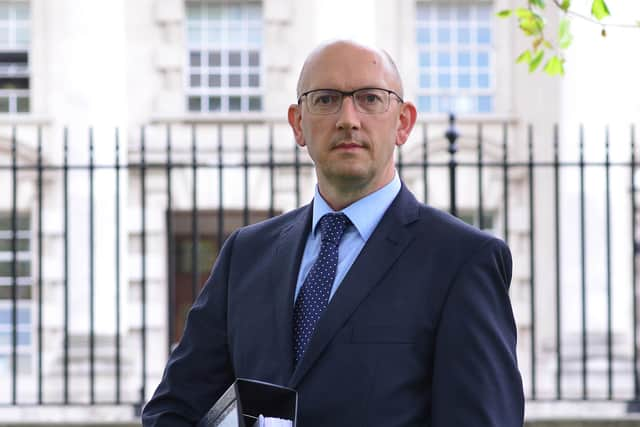BREAKING: Poultry farmer loses High Court battle over RHI payment cuts
and live on Freeview channel 276
Thomas Forgrave was challenging legislation introduced in 2019 which saw annual subsidies to boiler owners slashed from £13,000 to £2,000.
The north Antrim man insisted those who originally signed up to the scheme have a right to tariff rates guaranteed for 20 years.
Advertisement
Advertisement
But a judge dismissed Mr Forgrave’s case after being told he has received more than £1.1m in payments over a seven-year period for an outlay of just over £500,000.


Mr Justice Humphreys held: “It simply cannot be said that the applicant has been subjected to an excessive burden by reason of the interference with his economic interests under the scheme when he has received, to date, a return on capital investment of between £604,000 and £764,000.”
Set up to encourage businesses and other non-domestic users to switch to environmentally friendly wood pellet burning systems, the RHI scheme was plunged into controversy after the potential cost to taxpayers emerged.
Because subsidies were higher than fuel costs it became known as “cash for ash” and was closed to new entrants in 2016.
Advertisement
Advertisement
The debacle led to the fall of Stormont’s power-sharing administration in 2017, and a public inquiry which identified a series of failings but found no evidence of illegal activity.
Mr Forgrave issued judicial review proceedings against the Department for the Economy over the decision to cut payments in the Northern Ireland (Regional Rates and Energy) Act 2019.
His lawyers argued that he has been plunged deep into debt and left with a potentially unviable business because he trusted the government pledges on subsidies.
He is suffering while no-one at Stormont pays the consequences for blatant errors in the failed green energy initiative, it was contended.
Advertisement
Advertisement
The court heard Mr Forgrave borrowed more than £500,000 to pay for and install biomass boilers at his farm. At all times his actions were “exemplary”.
But amid concerns over reduced income rates, the bank loan was later restructured. He is now faced with repaying borrowings of £307,000 over ten years.
He argued that the Department has breached his right to property protected under European law.
During the challenge it was claimed that a catalogue of errors and defects in how the authorities ran the initiative were missed for years.
Advertisement
Advertisement
Consequently, the guaranteed payments were slashed as part of “draconian panic measures”.
It was further contended that the Department failed to recognise that the tariffs introduced by earlier 2017 Regulations brought the RHI scheme within budgetary limits, with projected figures for the 2019 tariffs of a £390m underspend.
But counsel for the Department argued that Mr Forgrave has already recouped up to three times what he invested after joining the scheme in 2014.
He contended that tariffs in excess of £1m was a fair return on the amount spent on installing biomass boilers.
Advertisement
Advertisement
Part of the justification for cutting subsidies was said to be a concern that providing more than a 12% rate on investments would breach EU state aid law.
Legitimate objectives of protecting the Northern Ireland budget and ensuring value for money in public expenditure were also cited.
Delivering judgment, Mr Justice Humphreys said the key issue was whether the 2019 Act imposed an unfair and excessive burden on Mr Forgrave.
He ruled: “I recognise that whilst the 2019 scheme is quite different from the 2012 original, the scheme remains in place following intervention to eliminate the flaws which were causing overcompensation.
“I have therefore concluded that the fair balance called for between the general interest and the interest of the individual has been achieved in this case.” ends